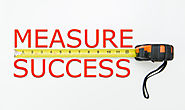-
About
- About Listly
- Community & Support
- Howto
- Chrome Extension
- Bookmarklet
- WordPress Plugin
- Listly Premium
- Privacy
- Terms
- DMCA Copyright
- © 2010-2025 Boomy Labs


 Dale Davis
Dale Davis
Listly by Dale Davis

Your transition from salesperson to sales manager is one of the biggest challenges in the sales profession. It requires a complete change in thinking. Overnight, you go from being in control of your own destiny to having your performance ratings determined by the results other people produce.




Like most sales managers, I spent several years as a sales rep before promotion to a sales management position. Here's what I know now that I wish I could have advised my newly-promoted self back in the day: Your top sales rep may not be your best choice for promotion to sales manager I had a sales manager opening to fill, and two quota-producing salespeople I was considering for the promotion.

Let's do a countdown on the most common reasons I've observed about why sales managers don't do enough coaching... When I ask sales managers to describe what kind of coaching they do, a lot of them say they sit down once a month with each rep to discuss activity level, results, and deals in the hopper.

Financial offerings warn that past performance is no guarantee of future success. Shouldn't sales managers carry the same warning? Too many companies tend to shoot themselves in the foot by investing the bulk of their training resources on their sales reps and ignoring training for those responsible for managing their reps' performances.

Recently during a workshop with a group of sales managers the question came up, “I just got promoted from sales rep to manager of the sales team. How do I make the move from being their buddy to being their boss?” Here are five suggestions:
The official announcement is symbolic of the transition from the past to the future. The military understands this concept well but many sales organizations do not. From most salespeople’s perspective the “top person” in their world-view is the executive two levels up —meaning the person who selected you to be the new team leader. So it’s important for your team to hear from your boss exactly what your new responsibility is and why you were selected.

If your sales team’s performance is not all that you think it should be, maybe you need to make some changes. Here are three mindsets for developing your action plan to transform your team’s performance.
You cannot tolerate mediocrity.
Every sales manager has one thing in common: a minimum producer. And the questions you have to ask yourself are, “Is the current level of sales from my minimum producer acceptable to me or not?” and then “Is it OK for the rest of my team to know that I tolerate this low level of production?”

Recently I was working with a team of sales managers and the question came up: “How do I handle a salesperson who sells a lot, but is uncoachable?”
It’s a common issue and one that sales managers must address. Success is contagious; unfortunately so is a lousy attitude.
Before talking with the team of sales managers about how to work with their trouble talent, I challenged them to look in a mirror first. Sales managers have to recognize that they may be part of the problem.

There’s no more frequent conversation between a sales manager and a sales rep than one that starts, “What are you going to sell this month?” And all too often, the rep’s projections come up frustratingly short of forecast. Here are five questions you can ask your salespeople to help you evaluate how much trust you should place in the accuracy of their forecasts. These questions will also help your reps focus on actions they can take to improve the odds of closing their deals.

The single most important issue in any sales organization is managing the funnel to achieve an accurate sales forecast. Let’s look at two ways this core issue is typically handled.
Company A’s funnel process uses one of the most common approaches to forecasting, orienting its sales funnel to the steps of its sales process: qualifying, opportunity identified, quotation provided, demonstration delivered, and negotiation/close. You know the drill.

One of the biggest issues that sales managers struggle with is sales rep motivation. Perhaps that’s why sales managers often ask me, “what can I say or do to get my salespeople more focused on achieving their sales goals?”
Personal motivators differ from one salesperson to another. There is typically a primary motivator and a secondary one for each sales rep on your team. Once you understand a person’s motivators you’ll want to incorporate them into your 1 on 1 conversations and other interactions.

While seasoned salespeople are highly valued for their expertise, they can sometimes pose a challenge when it comes to change. Name any kind of change—in company structure, compensation, sales territories, product lines, ownership, etc.—and it’s likely that many seasoned salespeople hate it. It’s understandable to some degree. Successful salespeople have fine-tuned their techniques and are extremely reluctant to change anything about how they work.
It’s no wonder, then, that I often hear sales managers complain: “My seasoned salespeople haven’t yet bought in to using our company’s CRM system. What can I do about it?”

As the saying goes, what gets measured gets done. How are you measuring your sales managers? One metric is, of course, “% of plan.” But you already know that.
Every sales manager wants to be provided with a clearly defined target. Give them a clear target and they will hit it. The trouble with providing them with only one metric focused on end results, such as “% of Plan,” is that sales managers can become very short-term focused. They will put their effort into chasing big deals instead of coaching. So your sales teams aren’t being built to last.

Whenever I ask sales managers to describe their approach to coaching their highest producers, they almost uniformly have the same answer: hands-off! They tell me: “I may get involved when a big deal is nearing to close, but otherwise if a peak producer is doing well, why would I want to mess with a good thing?”
And that, I tell them, is why their top salespeople don’t get better!
There’s no such thing as perfection in our profession any more than there is in any other profession. So I challenge sales managers this way: “Suppose,” I ask them, “you could get your top producers to do 10% or even 20% better? What kind of impact would that have on your results?” That often opens their minds to rethinking their hands-off approach.

Earlier this year the Sales Management Association conducted research on sales coaching. One of the more interesting findings they identified was regarding what topics are likely to get discussed during a sales coaching conversation.

Often times, I have conversations with sales managers who are looking in the mirror. They feel comfortable that they can help their reps improve, but wonder how they do the same thing for themselves. What can they do to improve themselves? Here are three tips:

The priorities and approaches applied by your salespeople are shaped largely by your own priorities and approaches. What’s important to you will become important to them. The difference between an effective sales coach and an ineffective one can be seen in what they focus on and what they get their reps to focus on. Here are two sales coaching challenges and solutions that, when implemented, will help you become an exceptional sales coach:
